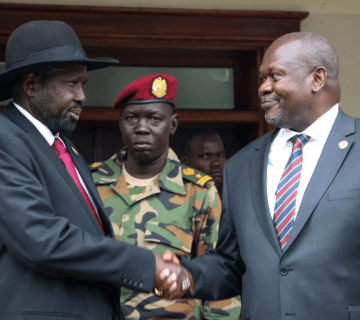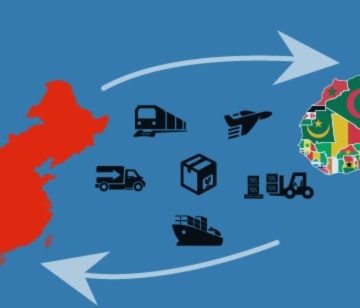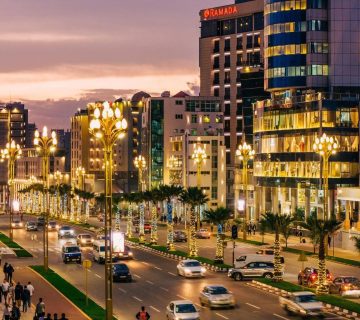The run-up to the October 29, 2025 general elections in Tanzania, has been marked less by contestation of ideas and more by the heavy-handed crackdown on the credible opposition. What began as targeted arrests and administrative restrictions has hardened into a systemic campaign that risks turning the imminent victory for the ruling Chama Cha Mapinduzi (CCM) and its candidate President Samia Suluhu, into a full-blown post-election crisis. From the most peaceful country in the region for decades, Tanzania now faces imminent instability spawned by the exclusion of the opposition from the upcoming elections, and President Suluhu’s widely perceived post-election legitimacy deficit.
The Road to Crisis
Tanzania has enjoyed relative peace for decades, compared to all her neighbours. That is likely to change and dramatically so, perhaps in few weeks. Repression and suppression which shot up with the assumption of office of President John Magufuli in 2015, are at a risky peak and have pushed the country to a tipping point. But the pattern has been clear and predictable all along. In a wave of intolerance, the main opposition leader, CHADEMA party’s Tundu Lissu survived an assassination attempt in 2017, after being shot 16 times. He fled to exile. The 2020 elections were marred by flagrant irregularities, which led to CCM garnering 84 percent of the presidential vote and 261 of the 264 parliamentary seats. The main opponent, Tundu Lissu, rejected the poll results and fled back to exile.
President Samia Suluhu’s succession of President Magufuli upon his sudden demise in March 2021, had raised hopes for political reforms, only for her to back-pedal. When then CHADEMA leader Freeman Mbowe, led a campaign for constitutional reforms, President Suluhu jailed him for over seven months, barely five months in her presidency. Mbowe had attempted to leverage on President Suluhu’s perceived goodwill and the regime transition period, to call for constitutional reforms. He was wrong. President Suluhu has intensified repression at an unprecedented level, ranging from arbitrary arrests and detention of critics, to crackdown on the main opposition. The 2024 local council elections in which CCM garnered 99 percent of the council seats, having systematically marginalized opposition parties, is one such instance.
In 2025, the pattern is unmistakable. The main opposition leader, CHADEMA’s Tundu Lissu, is in detention since April this year and faces treason charges for leading the “no reforms, no elections” campaign. CHADEMA has also been barred from this year’s presidential and parliamentary elections due in five days, over “procedural breaches”. Scores of government critics have been arbitrarily arrested or abducted, and some found dead. Tanzanian government’s stonewalling of constitutional reforms, exclusion of CHADEMA from elections, detention of Lissu, and crackdown on critics have polarized the country. Such repression is however inspiring tensions, will damage the credibility of the elections, and set the stage for the opposition and its supporters to reject poll results. The post-poll contest will plunge the country into crisis.
Why Focus on Tanzania’s Elections Matters
The mechanics of CCM’s political advantage, not just in the upcoming elections but also in the political space in Tanzania, are structural and deliberate. State institutions which should be impartial — especially the police, prosecutorial services, and courts of law — have been used to disrupt opposition mobilization. Arbitrary pre-emptive arrests of opposition party leaders, mostly from CHADEMA, to prevent protests, selective prosecutions for vaguely defined offences, and administrative bans on gatherings, all produce an uneven playing field where CCM dominates. Even more alarming are the reports of abductions, enforced disappearances and killings of opposition supporters and government critics. Such events are deepening public fear, resentment and anxiety.
But the very repressive tactics aimed at guaranteeing CCM a landslide victory risk political implosion on the account of legitimacy crisis, for President Samia Suluhu and CCM. The veneer of calm is likely to fall off; faced with exclusion, the opposition actors in Tanzania as elsewhere in the world might de-legitimize the election and resort to extra-institutional mobilization on streets hence civil unrest. Tanzania’s first major political crisis in decades, is imminent, with potential spill-overs across the region.
Rising Tensions
As coercive state violence increasingly migrates from isolated excesses to a predictable instrument of political control, portions of the populace are radicalized and the minimal trust necessary for post-electoral reconciliation is severely fractured. Public resentment is fermenting along predictable fault lines. Economic frustrations, clashes over land and evictions, and perceived favoritism in the distribution of resources, feed narratives of exclusion. When grievances intersect with the perception that electoral avenues are closed, the incentive to pursue extra-electoral remedies increases. That dynamic will be particularly dangerous in the post-election phase in Tanzania. There is a rising popular impatience among the public which could turn explosive if an election result is perceived as a foregone conclusion imposed by force.
Early this month, a video surfaced online of an alleged military officer “Captain Tesha” criticizing the government’s record on corruption, human rights and political freedoms, and warning of the necessity for military intervention to avert instability. While the Tanzanian military has disassociated itself with the video, tensions are rife, hence the Tanzanian government has resorted to saturating the mainstream media and digital platforms with calls for peace, with fake statements associating the religious institutions in the country with such peace messaging flooding digital platforms. Tanzania Episcopal Conference, the official assembly of Catholic bishops in the country, and the National Muslim Council of Tanzania (BAKWATA) have had to push back against fake documents and narratives associating them with peace messaging for the government.
A Credible Path Forward
Tanzania’s political future turns on a core choice, – will the state consolidate power by narrowing democracy, or will it widen the space for competition and preserve legitimacy? Short-term political security achieved through repression may look effective on the electoral results sheets, but history shows such largescale political disenfranchisement mostly provokes unrest.
At minimum, the immediate release of jailed political figures, mutually agreed postponement of the October elections to allow for the opposition sufficient time, transparent and impartial adjudication of electoral disputes, and an independent investigation into alleged disappearances and killings would arrest the imminent crisis. More substantively, further commitments for institutional and constitutional reforms are essential to rebuild public trust. Absent such steps, the 2025 vote risks achieving a pyrrhic victory for CCM, damaging Tanzania’s international standing, and worst of all, provoking an unstable and contested aftermath.
Photo Credits: Ericky Boniphace/AFP
Edmond Pamba is a Researcher at HORN International Institute for Strategic Studies.



